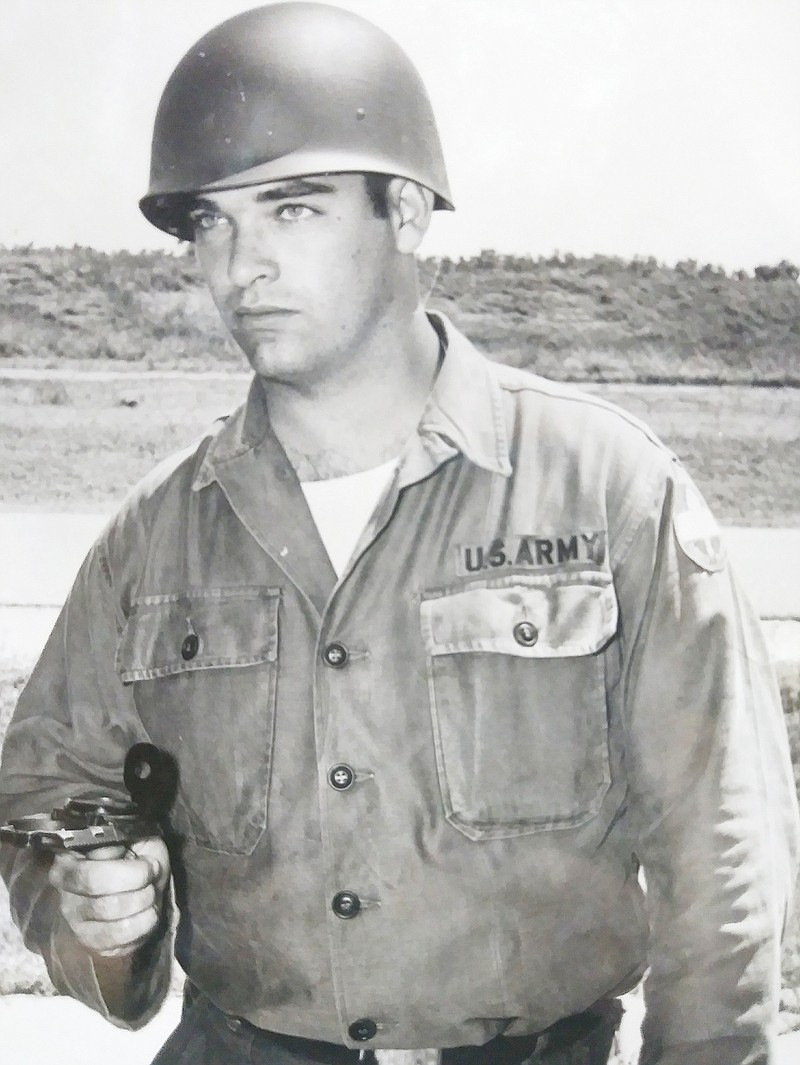When preparing to graduate from Jefferson City High School in 1967, Clayton "Bud" Hill, like many of his fellow students, worked with a school counselor to help determine his aptitudes and interests for post-secondary education and a future career. Scoring high in math, science and art, Hill thought he should pursue a degree in architecture, not realizing his future would later shift to civil engineering through the influence of military service.
"At the time, (University of Missouri-Columbia) didn't have an architecture degree," Hill said. "I decided that I could attend Lincoln University for two years to complete my prerequisites and then transfer to another university to finish my degree in architecture."
Beginning classes in the fall of 1967, Hill explained all males were required to complete two years of the Reserve Officer Training Corps (ROTC) program, receiving military-focused instruction structured to prepare them as future officers.
"I continued my education at Lincoln University because I received a golf scholarship," he said. "I remained in the ROTC program because I figured that I would be going to Vietnam after I graduated and could at least go as an officer."
Graduating with his bachelor's degree in building engineering and construction in May 1972, Hill was commissioned as a second lieutenant and then took a summer job working with the Cole County Highway Department to await orders for advanced military training.
Assigned to the engineer branch with the United States Army Reserve, he traveled to Ft. Belvoir, Virginia, in early 1973 for several weeks of the Engineer Officer Basic Course, learning many of the leadership fundamentals to serve successfully as a platoon leader with the U.S. Army.
Throughout the next four years, Hill was assigned to the Reserve Component Personnel Administration Center (RCPAC) with the United States Army Reserve in St. Louis, received promotion to first lieutenant in 1975 and continued working full-time for Cole County.
"The RCPAC was simply maintaining my records and I wasn't attending drills," he said. "It reached the point where I wanted to make a little more money and decided to join the Missouri National Guard part-time."
In August 1977, Hill became the platoon leader for the 110th Engineers in Kansas City. The same year, he began working full-time as a project manager for Groner and Picker Consulting Engineers in Jefferson City and passed his PE (Principles and Practice of Engineering) exam two years later.
Hill went on to serve with other Missouri National Guard units in the state and achieved the rank of captain; however, he chose to transfer to an inactive status shortly after his son was born, essentially leaving military service from August 1983 to August 1985.
"In 1985, I decided to get back into the Guard and was assigned to the 35th Engineer Brigade at Jefferson Barracks while working full-time for a local engineer firm," Hill said. "On one of my drill weekends in Jefferson City, I wrote a specification for repainting a couple of water towers for the National Guard at Camp Clark, which impressed the colonel who oversaw facilities management."
The following year, having demonstrated his competencies in providing engineering support services for the military, Hill was hired to serve in a newly established full-time federal technician position as a civil engineer with the Missouri National Guard.
The next several years were busy for Hill as he oversaw a number of engineering projects for the National Guard. This required coordination with outside government agencies and utility companies for construction projects that included armories throughout the state and the new Missouri National Guard headquarters (Ike Skelton Training Site), the latter of which was built in the early 1990s.
Achieving the rank of lieutenant colonel in 1996, Hill transitioned to a warrant officer in 2000. At the time, he had reached 28 years of military service, which was the cutoff for an officer of his grade who did not possess a slot for promotion to colonel. Becoming a warrant officer provided him the option of continuing his service as a civil engineer with the state's National Guard.
"One of the best parts of my service was when I met my wife, Barbara (who completed a career as a judge advocate general with the Missouri National Guard), while working on some federal construction projects," he said. "We married in 1995 and had our son, John-Paul, a few years later."
In addition to his civil engineering responsibilities, Hill continued to serve as a soldier while traveling throughout the U.S., participating in annual training exercises in Korea and completing a number of military schools. In 2009, he made the decision to retire after accruing more than 39 years of service.
"I could have stayed two more years, but I had already gone through a hip replacement and back surgery and realized that it was time," he modestly stated.
Like many others, the plans Hill made as a young adult shifted significantly over the years, resulting in career path he could never have anticipated. His professional career was filled with many interesting experiences, the most rewarding of which have been the relationships he fostered.
"When I first started working for the Missouri National Guard, they didn't even have surveying equipment and they bid out virtually every aspect of the construction process," he explained. "We soon began to layout projects, design them in house and became more hands-on in the construction."
He continued, "And for me, it wasn't the next promotion that was the most important aspect of my career, it was the places I got to travel, the many wonderful people I got to meet and the projects I had a hand in managing." With a smile, he added, "And if it weren't for the National Guard, I would never have met my wife."
Jeremy P. mick writes on behalf of the Silver Star Families of America.

